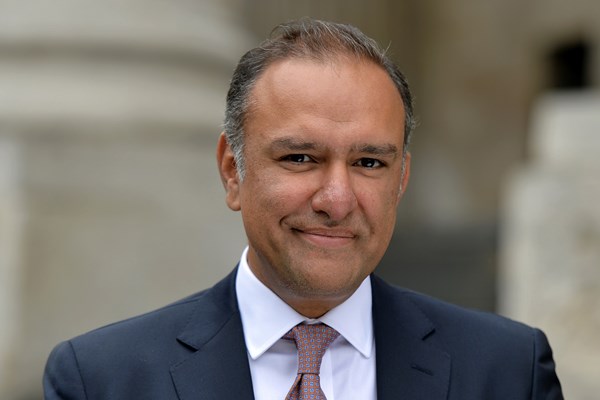30 May 2025
Why Italy (and Milan) is of Interest
1. Favourable Tax and Residency Regimes
Italy has lately introduced or enhanced tax incentives that make it attractive for wealthy individuals to become residents (or non-dom status). For example, the “flat tax” (regime forfettario per neo-residenti) was doubled in August 2024 from €100,000 to €200,000 annual substitute tax for new applicants, making Italy more competitive in terms of foreign income taxation.[1]
Moreover, the carried interest regime in Italy has become more flexible and attractive: carried interest taxed at 26% when certain conditions are met, which is relatively favourable by comparison. [2]
2. Large Pool of Undermanaged Wealth
Wealthy Italian households hold large amounts of financial wealth, a substantial proportion of which is not professionally managed. For instance, Mediobanca estimates that households in Italy possess €5.3 billion in financial wealth, and a substantial portion of this (~60%) is unmanaged. This under-penetration is a strong growth opportunity for firms that provide private markets, alternatives, and private banking services. [3]
3. Regulatory and Legal Improvements
Italy has improved its regulatory framework for Alternative Investment Funds (AIFs), under the European AIFMD regime, together with more flexible structures in management and fund distribution. There is also an Investment Management Exemption (IME) regime which offers a “safe harbour” for foreign funds / managers operating in Italy so they do not inadvertently create permanent establishment (PE) / tax exposure for certain restricted activities. [4]
Also, there is clarity in how AIF/SME / private equity / alternative fund vehicles are structured under Italian law (e.g. consolidated law on finance, collective portfolio management rules).[5]
4. Existing Wealth Management Infrastructure and Talent Pool
Milan is historically the financial capital of Italy. It already hosts large wealth managers, private banks, and asset management firms (Anima, Azimut, Mediobanca etc.) with deep local relationships. That means firms expanding into private markets have access to distribution channels, clients, relationship managers, legal / compliance / financial services talent, and service providers.[6]
Also, the partnership between Mediobanca Private Banking and iCapital shows that local wealth firms are keen to integrate private markets offerings, and are upgrading their technology, operations, and educational capabilities to do so.[7]
5. Growth of Smaller Company & SME Opportunities
Italy’s economy has many SMEs and mid-caps. Alternative investment firms see opportunities in private credit, direct lending, infrastructure, and private equity tied to these domestic companies. Having a local presence helps understand local legal, labour, regulatory, and cultural issues in sourcing deals and performing due diligence. The proximity helps to serve wealth clients who may wish to invest in local or regional private market assets.
6. Competition and Global Shifts
As other jurisdictions (UK, Switzerland, etc.) tighten regulation, tax, or attractiveness for HNWIs, Italy’s improving incentives make it a more attractive jurisdiction. Wealth migration / relocations (of individuals) contribute to the pool of potential clients with interest in alternatives. Milan is benefiting from these dynamics. Also, global alternative firms like Ares are explicitly opening Milan offices and hiring local leadership to capture this momentum.[8]
Outlook / How This Will Develop
1. More Local Offices / Leadership Hires
Expect more international private markets / alternative firms to establish or expand Milan-based teams: sales / distribution / wealth client specialists, client education, compliance, product local adaptation. As Ares has already shown by hiring an ex-Goldman Sachs exec in Milan to head Italy.[8]
2. Tailored Private Market Products for Italian Wealth Clients
Greater development of feeder structures, semi-liquid or open-ended private equity or credit funds compatible with the preferences of Italian HNWI / family offices. Products that balance illiquidity with redemption options, tax-efficiency, local exposure. Firms will adapt their offering to Italian regulatory constraints and client tastes.
3. Stronger Distribution Partnerships
Italian banks, private banking platforms, wealth managers will form more partnerships (or tie-ups) with alternative managers / fintech platforms to provide access to private markets. The Mediobanca-iCapital example is illustrative. These partnerships will help lower operational friction, client onboarding, education, risk disclosure.
4. Regulatory / Tax Developments Will Be Critical
The Italian government may continue to refine tax incentives (flat tax, non-dom / neo-resident regimes), carried interest rules, fund vehicle regulations to attract capital and retain competitive advantage versus other European hubs. Any negative shifts (e.g. tax increases or regulation tightening) could stall momentum.
5. Risk of Oversupply or Reputation Risk
With many firms entering, the competition for fees, talent, and good deals (especially in private markets) will rise. There is risk that firms may underserve on due diligence, governance, or transparency in the rush, which could lead to setbacks in trust. Also, macro-economic and political risk remains (Italy has at times political instability, regulatory change risk, tax policy volatility) which firms will need to manage.
6. Potential of Regional Hub Status
Milan could become not only a location serving Italian clients but a regional hub for Southern Europe for alternative investment distribution, with Spain, Portugal, and perhaps parts of Eastern Europe being markets served from Milan. The time zone, culture, language connections, proximity to Continental European regulation make it well-positioned.
Conclusion
In summary, Italy (and Milan especially) is increasingly attractive to alternative investment managers seeking to serve wealthy individuals, family offices, and private banks with private markets products. The combination of tax / regulatory reform, a large under-served pool of wealth, existing financial muscle in Milan, and opportunistic local deal flow makes it compelling. Over the next few years, growth seems likely to accelerate, provided firms successfully adapt to local norms, maintain strong governance, and that Italy’s incentive environment remains stable and competitive.
[1] https://theitalianlawyer.com/italys-flat-tax-a-guide-for-investors
[2] https://www.withersworldwide.com/en-gb/insight/read/italy-s-carried-interest-regime
[3] https://www.reuters.com/business/finance/mediobanca-offer-richer-clients-illiquid-kkr-alternative-fund-2024-05-27
[4] https://www.aima.org/article/relocation-of-investment-managers-to-italy.html
[5] https://www.legal500.com/guides/chapter/italy-alternative-investment-funds
[6] https://www.animasgr.it/EN/group/Pages/default.aspx
[7] https://icapital.com/newsroom/press-releases/icapital-and-mediobanca-private-banking-partner-join-forces-to-facilitate-private-markets-access-for-high-net-worth-individuals/
[8] https://www.fnlondon.com/articles/ares-hires-ex-goldman-sachs-exec-to-lead-italian-wealth-business-f2eda4c4
AMC would be delighted to discuss this space in more detail. If so, please contact Navin Raina.
